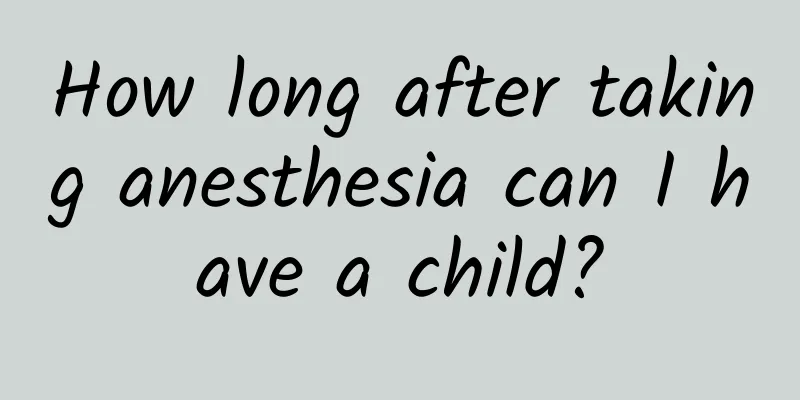Hyperthyroidism severity grading

|
Hyperthyroidism severity grading, Hyperthyroidism is a disease caused by excessive thyroid hormone secretion by the thyroid gland. This disease is more common in women. Excessive thyroid hormone can cause a series of clinical manifestations, such as heat intolerance and sweating, increased appetite and weight loss, palpitations, emotional tension and temper. If other problems arise, it is recommended to go to the hospital for relevant examinations and treatment. 1. Hyperthyroidism complicated by pregnancy Hyperthyroidism often occurs in women of childbearing age, so we often encounter patients with hyperthyroidism and pregnancy in clinical practice. Since antithyroid drugs have teratogenic effects on the fetus, it is necessary to discuss with the doctor based on the condition of the patient to decide whether to keep or abandon the fetus. Pregnant hyperthyroidism patients are contraindicated for radioactive iodine treatment. Most hyperthyroidism patients who need to continue their pregnancy are treated with medication, and the minimum effective dose should be used as much as possible. Thyroid hormones should not be added simultaneously during treatment. Free T4 (FT4), free T3 (FT3) and TSH, rather than total T4 and total T3, need to be measured every 1 to 3 months. During treatment, free T4 needs to be maintained at the upper limit of normal values. 2. Thyroid-related eye disease Most cases of hyperthyroidism are Gravs' disease, which is an organ autoimmune disease. Organ autoimmune diseases are often combined with other organ autoimmune diseases. Hyperthyroidism patients often have exophthalmos, which is an organ autoimmune disease of the orbit (including the extraocular muscles and retroocular fat). Clinically, in addition to Graves' disease patients, some other thyroid autoimmune diseases, such as chronic lymphocytic thyroiditis, can also present with exophthalmos, so we call it "thyroid-related eye disease." There is no direct relationship between thyroid-related eye disease and Graves' disease. They are not a "father and son" relationship, but a "brother" relationship. Satisfactory control of hyperthyroidism is helpful for eye disease, but it does not necessarily improve. treat There are three methods for treating hyperthyroidism: antithyroid drug therapy, radioactive iodine therapy and surgical treatment. Antithyroid drug treatment has a wide range of applications. It can be used to treat adults and children, men and women, mild or severe hyperthyroidism, first-time attack or recurrence of hyperthyroidism, and pregnant or breastfeeding women with hyperthyroidism. There are two types of antithyroid drugs - imidazoles and thiouracils. The representative drugs are methimazole (also known as "thimazole") and propylthiouracil (also known as "propylthiouracil"). Drug treatment is suitable for pregnant women with hyperthyroidism, children, and patients with mildly enlarged thyroid gland. Treatment generally takes 1 to 2 years, and the drug dosage needs to be increased or decreased during treatment according to the thyroid function. Drug treatment has some side effects, including granulocytopenia, drug allergy, impaired liver function, joint pain and vasculitis. The side effects of drugs need to be closely monitored in the early stage of drug treatment, especially granulocytopenia. Patients need to be warned that if they have fever and/or sore throat, they need to check their granulocytes immediately to determine whether granulocytopenia occurs. Once it occurs. Immediately discontinue emergency medication. Another disadvantage of drug treatment is the high relapse rate after discontinuation of medication, which is about 50%. Both radioactive iodine therapy and surgical treatment are destructive treatments. Hyperthyroidism is not likely to recur and treatment only requires one time. Radioactive iodine is suitable for patients with moderate thyroid enlargement or recurrence of hyperthyroidism. Doctors calculate the radiation dose required for each patient based on the patient's thyroid gland's uptake rate of radioactive iodine. Radioactive iodine is absolutely contraindicated in pregnant and lactating women. Because radioactive iodine has a delayed effect, the incidence of hypothyroidism is 3% to 5% per year over time. Radioactive iodine therapy is not suitable for hyperthyroid patients with thyroid eye disease because the eye disease may worsen after treatment. Surgical treatment is suitable for those with significant thyroid enlargement, or those who are highly suspected of thyroid malignancy, or those whose thyroid enlargement compresses the trachea and causes breathing difficulties. Before surgery, medication is needed to control thyroid function within the normal range, and oral compound iodine solution is also required as preoperative preparation. |
<<: Is hyperthyroidism serious?
>>: How serious is the high T3T4 of hyperthyroidism?
Recommend
Itchy eyes, nose, and ears
Allergic rhinitis has certain genetic factors and...
Newborns poop more than 10 times a day
Since newborns mainly rely on breast milk or form...
Can nail melanoma be cured?
Melanoma scares many people. This disease is very ...
What are the precautions and diet for hypothyroidism
Hypothyroidism is a disease that will not show ob...
What are the foods that nourish the liver? Eat this to nourish the liver
There is some truth in the saying that you are wh...
What is the cause of the left kidney cyst?
Studies have found that congenital maldevelopment...
What are the functions and effects of normal saline
The main function of normal saline is to dissolve...
How to cure hiccups
Hiccups are a common symptom in life. Although it...
Is liver palm disease serious?
A healthy lifestyle will keep people in good phys...
How long does it take for a duodenal ulcer to heal?
Duodenal ulcer is a very common disease at presen...
The location of the appendix and the causes of appendix pain
The appendix is one of the organs in the human ...
What are the symptoms of herpes in women? How to treat it?
Herpes is a common skin disease. Generally speaki...
How to use hemorrhoid cream
Hemorrhoids are quite common in daily life, so do...
The efficacy and function of Dezhong Yupingfeng granules
De Zhong (Yupingfeng Granules) is a gynecological...
Can pregnant women drink bamboo leaf tea?
Pregnant women must drink less bamboo leaf tea, b...









